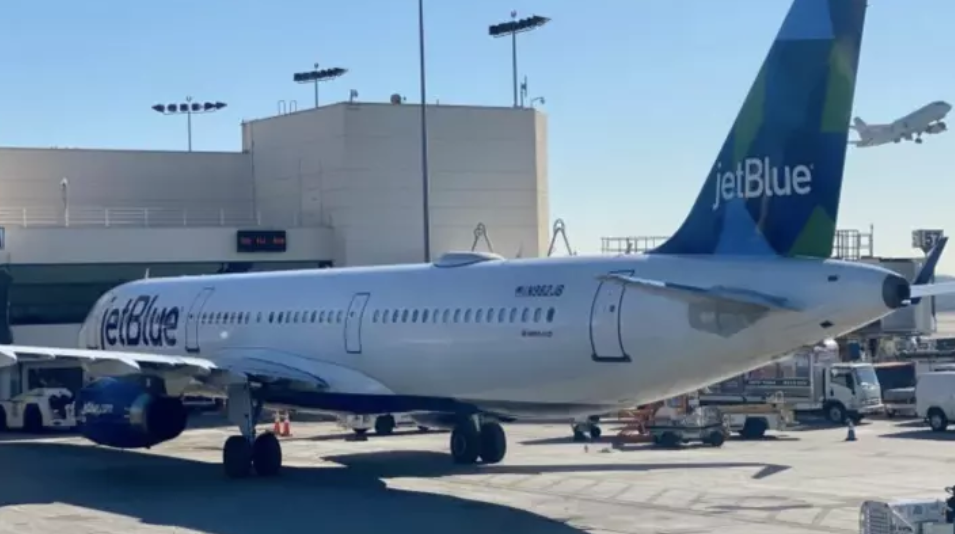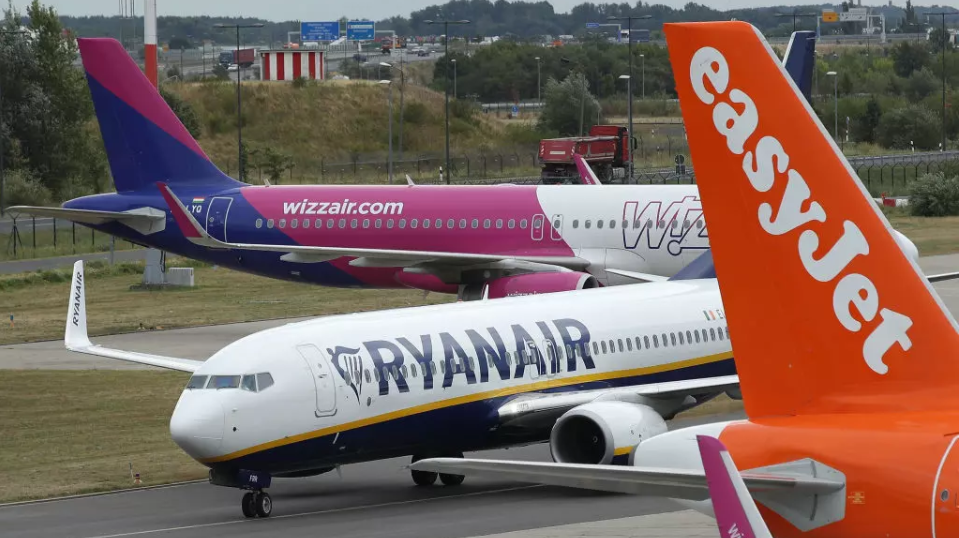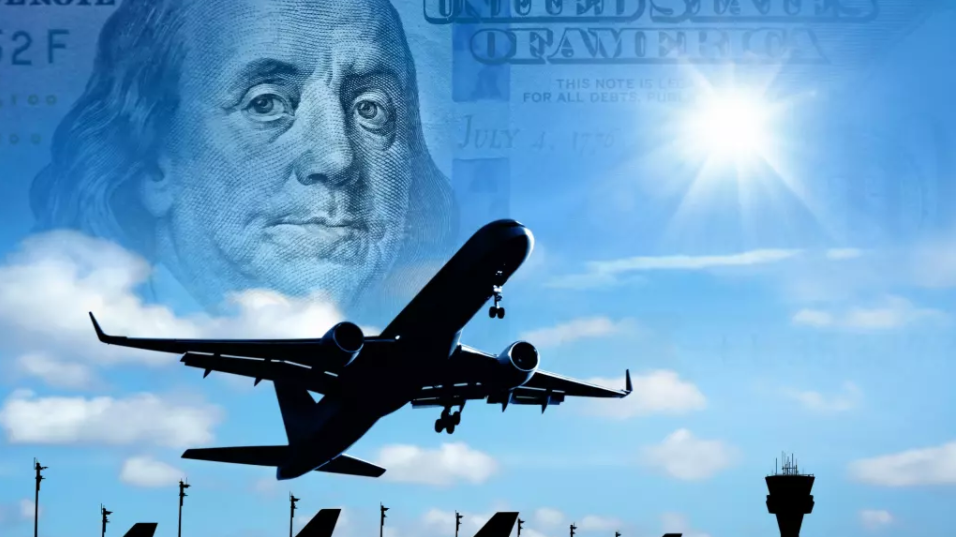HNA restructuring may mean ownership changes for China's airlines
Bankruptcy proceedings for China's HNA Group could have significant consequences for its large stable of airlines. While it is not yet clear exactly what will transpire during the group's restructuring process, it is possible that it may have to divest more of its airlines. Such moves would likely prompt a degree of consolidation in the crowded mainland China market, or to a lesser extent in Hong Kong.
The HNA Group is not liquidating, but it will have to undertake court-supervised restructuring. It is the latest of several Asia-Pacific airline companies to find itself in this predicament - whether voluntarily or involuntarily - since the COVID-19 crisis began.
Of course, HNA Group's financial woes and shaky condition predate the pandemic, and the sudden demand and revenue drop was the final straw.
TO READ ON, VISIT: HNA restructuring may mean ownership changes for China's airlines

Davos conference avoids critical questions on COVID and aviation
While inertia, rising COVID case numbers, quarantines and lockdowns strangle attempts to get people back in the air, the great and good have attended (in-person or virtually) the annual World Economic Forum at Davos in Switzerland in the last week of Jan-2021.
The lack of any substantial discussion there of the ever-deepening crisis for aviation that is COVID-19, and how to get out of it, raises the question of who can formulate a global policy to achieve that aim. Individual countries, run by politicians concerned with their 'legacy' and driven by national self-interest, are not going to rise to the challenge; nor, apparently, are collections of states like the European Union.
The only remedy must surely come from the United Nations and its agencies, in league with knowledgeable aviation and tourism organisations.
This report examines some of the questions those bodies should be - but aren't - answering.
TO READ ON, VISIT: Davos conference avoids critical questions on COVID and aviation

Only a few airlines collapsed in 2020
What is surprising about 2020 is not how many airlines collapsed or entered bankruptcy of one kind or another. Only around 30, out of a total of thousands.
The surprise, in an unimaginably dreadful year, where international capacity fell to around one tenth of its previous level and many domestic operations fared only slightly better, was that so few airlines went out of business.
And, at the same time many new airlines saw fit to enter the market.
TO READ ON, VISIT: Only a few airlines collapsed in 2020

US value airlines look for inflection point, but uncertainty abounds
US value airlines are joining their larger counterparts in believing an inflection point in demand could occur in the back half of 2021 as vaccine distribution and administration becomes more widespread.
Alaska is declaring that it will be moving towards a sizeable restoration of 2019 capacity by the US summer travel season, while JetBlue and Southwest have not offered any projections for that same period. A potential added layer of uncertainty is emerging as reportedly the US government is considering requiring COVID-19 testing for domestic air travel.
For now, those airlines are attempting to drive passenger volume through stimulation, and that scenario is not likely to change anytime soon as pandemic challenges continue to blunt demand in 1Q2021.
TO READ ON, VISIT: US value airlines look for inflection point, but uncertainty abounds

European aviation: bottoming out, but no sharp rise likely
There are some signs that Europe's airline capacity may be close to bottoming out again. Weekly seats in the week of 1-Feb-2021 are down by 74.4% versus 2019, and the trend has been within a percentage point of this for three weeks.
However, new short term traffic scenarios from EUROCONTROL suggest that activity will remain low through 1Q2021 and only start to rise in Apr-2021 or May-2021.
Moreover, Europe's seat capacity continues to underperform the rest of the world this week. Middle East is down by 55.6%, Africa is down by 50.5%, North America by 47.8%, Asia Pacific by 44.7%, and Latin America by 42.1%.
EUROCONTROL's two scenarios both depict a flat bottom to the current cycle, with only a gentle rise in 2Q2021. Neither expects last summer's peak (reached in Aug-2020, when ATMs in Europe were -51% and seats were -55% versus 2019) before the end of 2Q2021 at the earliest.
Air traffic will improve once national travel restrictions start to ease. This has been delayed, but peak summer 2021 still offers the possibility of improvement over 2020.
TO READ ON, VISIT: European aviation: bottoming out, but no sharp rise likely

HNA Group restructuring: Foreign airport aspirations
Administration has been in the wind for China's HNA Group for a long time, and especially so since 2017, which coincidentally was the peak of its interest in airport deals.
On 29-Jan-2021 China's HNA Group - a huge multi-industry enterprise covering air transportation, airport management, hotels, logistics, real estate, retail, tourism and other related industries - applied for bankruptcy and reorganisation, after a long period of financial struggle and amid allegations of embezzlement. Creditors applied to the courts for bankruptcy proceedings because the group could not pay off due debts.
HNA is better known for its airline portfolio than for its airports, which in China are mainly smaller regional ones, and which outside China amount to just one.
Things could have been a lot different though as the Group tries to tap into China's Belt and Road initiative.
TO READ ON, VISIT: HNA Group restructuring: Foreign airport aspirations

Santiago airport concession seeks "financial equilibrium"
It was only a matter of time before an airport concessionaire asked for financial recompense for its losses brought about by COVID-19.
Indeed, that is already the case at numerous airports in Brazil, where initial miscalculations on traffic numbers have been compounded by the effect of the virus.
Now it is happening in Chile. But while the Brazilian government has been generous in dealing with such requests, the Chilean one is playing hardball, and the matter may have to go to arbitration.
Increasingly it looks like this will become the norm, and future concession agreements must surely be influenced by these events.
TO READ ON, VISIT: Santiago airport concession seeks "financial equilibrium"

Ryanair, easyJet, Wizz Air: Europe's LCCs eye recovery after tough 4Q
Ryanair, easyJet and Wizz Air's results for calendar 4Q2020 were not pleasant. The three LCCs have performed better than Europe's leading legacy airline groups in the COVID-19 pandemic, so their results provide an upper boundary for the likely performance of the legacies when they report.
Revenue decline for the three LCCs accelerated from 3Q2020, with easyJet suffering the heaviest drop. All of them improved ancillary revenue as a share of the total in 4Q2020, but easyJet is the weakest of the three in this area.
All three are operating minimal capacity while travel restrictions remain tight across Europe, focusing only on cash-generative operations. However, all expect market share gains when demand recovers.
The recovery should present all three with opportunities, although Ryanair and Wizz Air's more aggressive growth plans and lower unit costs may give them an advantage over easyJet.
TO READ ON, VISIT: Ryanair, easyJet, Wizz Air: Europe's LCCs eye recovery after tough 4Q

Bahrain Airport's new terminal to raise standing in the region
It has been a long time in the planning, and has missed numerous deadlines, but Bahrain Airport's new terminal is finally about to open.
Bahrain is rarely mentioned in the same league as its neighbours Doha, Abu Dhabi and Dubai, and its economy has been in transition as the oil starts to run out (and would it perhaps be needed in the future green world anyway?).
Despite the pandemic, the authorities did not postpone the new terminal. They no doubt realised that whatever the world looks like in a few years' time, having a welcoming new airport terminal is not going to harm its prospects.
The question now is what will become of the scheme for a brand new airport that had reached the RFP stage before the virus struck?
TO READ ON, VISIT: Bahrain Airport's new terminal to raise standing in the region

US airports' funding crunch - are P3s the answer?
Although the United States has failed to sell the idea of leasing its airport terminals to the private sector over almost 25 years since the first airport privatisation programme was initiated, various events have made the public-private initiative (PPP OR P3) more popular with municipal owners.
Now the P3 is shifting into other areas of operation, with people movers and consolidated car rental facilities top of the list.
Based on some short articles by the Reason Foundation, this CAPA report examines various examples, including a groundbreaking financial deal in New York, and also where this movement might go next.
TO READ ON, VISIT: US airports' funding crunch - are P3s the answer?
